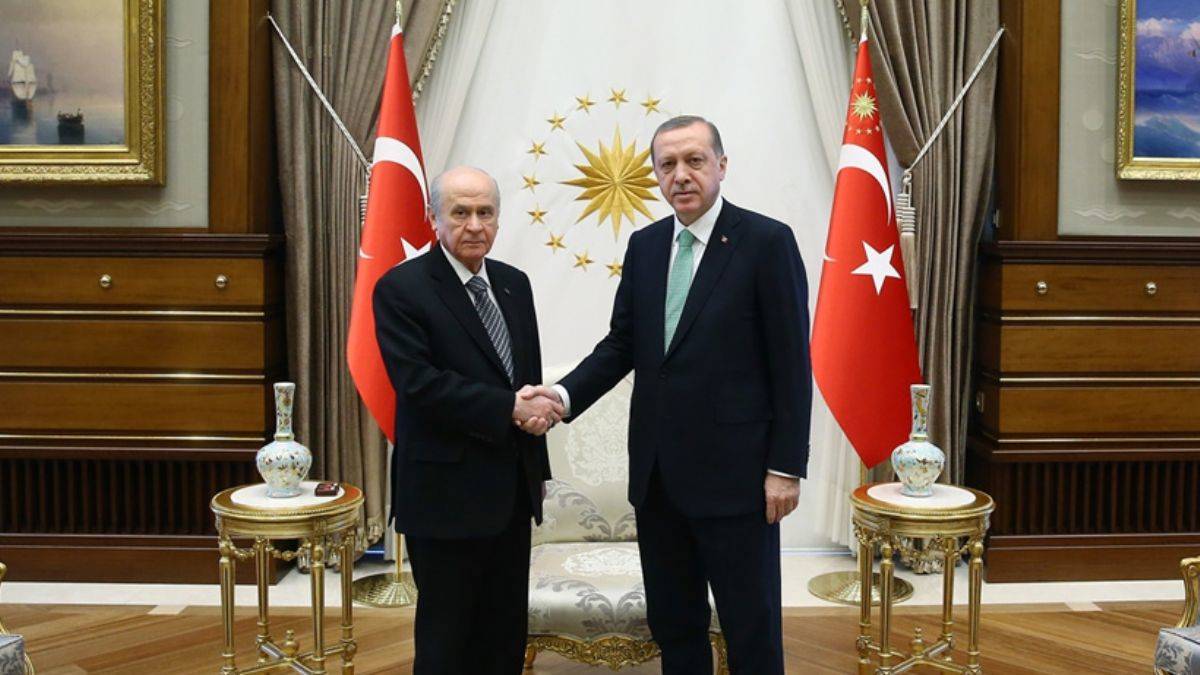Türkmen Terzi
Turkey’s Islamist President Recep Tayyip Erdoğan, throughout the many years that he has been involved in politics, has always defended the rights of women to wear headscarves in public spaces against Turkey’s secular establishment that dominated the state. He also gained fame with his anti-Israeli rhetoric. However, Erdoğan honored Israeli President Isaac Herzog in Ankara on March 9, with Israeli flags flying along the presidential protocol path. Erdoğan has also remained silent concerning the issue of Turkish police having badly beaten headscarved women who are members of the Furkan Foundation, an anti-government religious group.
Turkey’s conservative and Islamist opposition Felicity Party (SP) leader Temel Karamollaoğlu, Gelecek (Future) Party leader Ahmet Davutoğlu and DEVA Party leader Ali Babacan strongly condemned Erdoğan’s Islamist-rooted Justice and Development Party (AKP) government for allowing police brutality including the use of batons, plastic bullets and pepper spray to disperse hundreds of members of the Furkan Foundation including women, children and the elderly who had gathered in the southern province of Adana to protest the continued pretrial detention of eight foundation members who were arrested in January.
Erdoğan was, of course, harshly criticized within Turkey’s Islamist circles for hosting the Israeli president. “Brave young protesters from the Anatolian Youth Association [AGD] removed Israeli flags flown in celebration of Israeli occupation President Herzog’s visit to Turkey and replaced them with Palestinian flags,” Turkey’s Islamist Milli Gazete newspaper tweeted regarding the protest by the youngsters.
It is clear that Erdoğan had no option but to reluctantly host Israeli President Herzog as Turkey is currently in the midst of a serious economic crisis, and Israel has long had strong business and defense ties with Turkey. Turkey was the first Muslim -majority country to recognize the State of Israel in March 1949, but relations temporarily collapsed following the Mavi Marmara incident in which Israeli commandos killed 10 Turkish activists aboard a ship that was part of an aid flotilla attempting to breach the blockade of Gaza on May 31, 2010. Turkey and Israel signed a deal to normalize diplomatic relations in March 2016, but there was once again a collapse in 2018 after Israeli forces killed more than 200 Palestinians during the Great March of Return protests.
It has become clear that Turkey’s military establishment has taken Erdoğan’s government hostage as the ruling AKP no longer wields sufficient power to resist Turkey’s traditional secularist-ultranationalist bureaucracy. The Turkish Republic was founded by Mustafa Kemal Atatürk, a military commander who introduced modern reforms and replaced the Ottoman Empire with the Republic of Turkey. For decades Turkish soldiers were convinced and conditioned to believe that they were the custodians of Atatürk’s secular regime.
Erdoğan fought against Turkey’s military tutelage in the early years of his tenure as prime minister. He introduced democratic reforms in an attempt to ensure that Turkey became a member of the European Union. The Turkish public for the first time witnessed the mass arrest of high-ranking military officers in the Ergenekon and Sledgehammer trials between 2008 and 2016. These men were accused of having attempted to overthrow the AKP government through the use of force, urging others to commit crimes. Erdoğan fully backed prosecutors during the Ergenekon trials, saying that he himself was the prosecutor of the trials. Moreover, Ahmet Sever, the press secretary to former President Abdullah Gül, wrote in his book that the chief prosecutor of the Ergenekon trials, Zekeriya Öz, was working directly under Erdoğan.
But Erdoğan had to release many high-profile Ergenekon defendants in March 2014, months after the December 17-25. 2013 corruption cases that targeted Erdoğan’s inner circle including his son Bilal Erdoğan. Turkey’s ODA TV, closely linked to the military establishment, reported on March 14, 2014 that Erdoğan released military officers to fight against his former ally, the Gülen movement. Instead of making the trial of those implicated on corruption charges possible, Erdoğan attempted to convince the public that the corruption cases were part of a coup attempt against his government being carried out by Gülen-affiliated police and prosecutors. Since then, Erdoğan has established a relationship with the convicted military officers who planned the coup attempts against him in 2003 and 2004.
Erdoğan initiated the Kurdish peace process in 2013, but his government continued the talks mainly with the Kurdistan Workers’ Party (PKK), an armed group that had been fighting against the Turkish state since 1983, instead of with legitimate Kurdish parties. Erdoğan ended the peace process when the pro-Kurdish Peoples’ Democratic Party (HDP) surpassed the 10 percent threshold with 13.1 percent of the vote, ensuring them 80 seats in the Turkish Parliament in the June 2015 general election. The election results angered Erdoğan, and he ceased the Kurdish peace process and approached the Nationalist Movement Party (MHP). The MHP supported Erdoğan’s plans to a switch to a presidential system of governance through a constitutional referendum in April 2017. The AKP and MHP formed an electoral alliance in February 2018.
Since Erdoğan formed an alliance with the military establishment in 2014 and an electoral alliance with the nationalists in 2018 to secure his political rule, he has progressively lost control over Turkey’s state apparatus. Hence, Erdoğan is in a position so weak that he remained silent when his own police force severely beat fully covered women.
Erdoğan has developed a strong personal relationship with Russian President Vladimir Putin. Turkey and Russia signed huge energy deals, and Turkey purchased a Russian S-400 missile system. Erdoğan’s AKP is a unique government that has been pursuing diplomacy with both Russia and Ukraine. It seems that the weak Erdoğan, who has lost control at home amid a deteriorating economy, cannot maintain a balance in Turkey’s relationship with NATO and Russia any longer, leaving Turkey at risk of becoming a part of the conflict between Russia and Ukraine.



